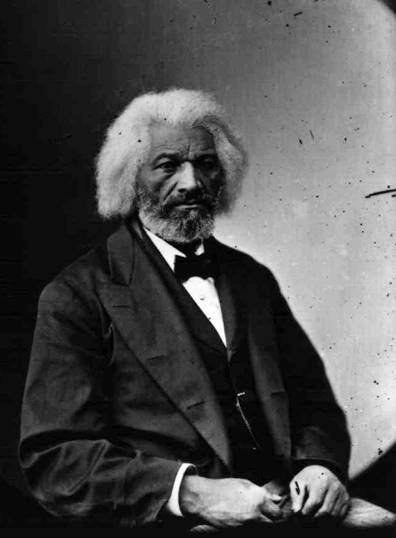We typically think of February 14 as Valentine’s Day, but there’s another reason to love the day—Frederick Douglass celebrated his birthday on that date. It is now observed annually as Douglass Day. The first Douglass Day was commemorated in 1897, just two years after Frederick Douglass’s death, by the District of Columbia Schools at the urging of board member Mary Church Terrell.
The Library of Congress includes a collection of Frederick Douglass papers. They relate to his life during and after the Civil War. Most of his earlier personal papers were destroyed in a fire in 1872. The collection of papers also contains correspondence related to Douglass’s work as a writer, editor, orator, public servant in various appointed positions after the Civil War, and commissioner of the Haitian Pavilion at the 1893 World’s Columbian Exposition. The private side of Douglass’s life is illustrated by his correspondence with family and personal friends.
On Douglass Day, the Library of Congress By the People project will launch a Douglass transcription campaign at crowd.loc.gov. Participants will be invited to transcribe the General Correspondence series of Frederick Douglass’s papers. This series offers transcribers the opportunity to delve into Douglass’s personal and public life. As with the correspondence in most collections of personal papers, the General Correspondence series consists primarily of letters written to him, but some drafts and copies of his outgoing mail are also included. Douglass received letters from notable abolitionists, reformers, and activists, such as Ida B. Wells, Susan B. Anthony, and William Lloyd Garrison.
Learn even more from the “The Frederick Douglass Papers at the Library of Congress.”
If you are incorporating Douglass and his works in your classroom, visit this post on teaching Frederick Douglass’s autobiography or this one on African American manuscripts.
Want to learn more about the transcription process? Learn more by viewing this archived webinar on “Transcribing Whitman.”
Photograph of Frederick Douglass in 1890; Credit: Mathew Brady Studio. “Frederick Douglass.” C. 1890.
African-American Perspectives: The Progress of a People, Library of Congress.
Curious about the NCTE and Library of Congress connection? Through a grant announced by NCTE Executive Director Emily Kirkpatrick, NCTE is engaged in ongoing work with the Library of Congress and “will connect the ELA community with the Library of Congress to expand the use of primary sources in teaching.” Stay tuned for more throughout the year!
It is the policy of NCTE in all publications, including the Literacy & NCTE blog, to provide a forum for the open discussion of ideas concerning the content and the teaching of English and the language arts. Publicity accorded to any particular point of view does not imply endorsement by the Executive Committee, the Board of Directors, or the membership at large, except in announcements of policy, where such endorsement is clearly specified.
Lisa Fink is an NCTE staff member, a former elementary teacher, and a current university instructor at the University of Illinois, Urbana-Champaign. She can be reached on Twitter @fink_girl.

